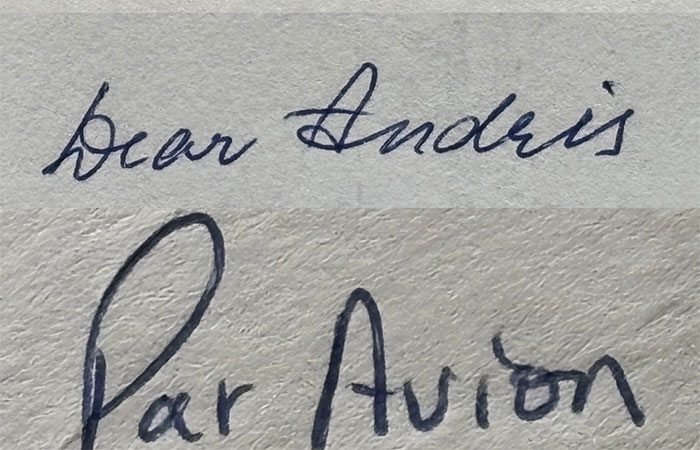As a namer, I think that Toronto Tempo, the new moniker for the city’s WNBA franchise, nails it like a nothing-but-net three-pointer. In contrast, Toronto’s new PWHL team fanned on their name: Sceptres.
First, the Tempo.
As a namer, I love it. It is a great name because of its sounds, many positive meanings in both English and French, and differentiation among its competitive set.
The alliteration between the Ts in Toronto and Tempo – and the Os in the two words – gives the name musicality.
All of those Ts are what we call plosives (a word derived from “explosive”), defined as a consonant sound made by stopping airflow in the mouth and suddenly releasing it (other plosives are p, k, b, d, and g). Toronto Tempo thus sounds explosive and strong, qualities that are positive associations for any basketball team.
Tempo on its own is an interesting word, in that it sounds like its meaning: because of its brevity and plosiveness, it sounds fast – speed being another positive association when playing hoops.
The Tempo aspire to be a team for all Canadians, and I have confirmed with my colleague Isabel Massey that the name works in French, as the word tempo is used in musical language – to express rhythm, for example. She adds the fun fact that tempo is also the name Quebeckers have given the temporary snow shelters they use for their cars.
The name is also original in its realm – originality giving the sense that something special is happening with this organization and that care is being taken to bestow it with a strong and unique identity.
A quick Google tells me that Tempo has been used for other professional sports teams, but not in the NBA, NHL, NFL and Major League Baseball, or by very high-profile teams elsewhere, such as the European professional soccer leagues. Looking at the other WNBA names, not all of them can claim such distinctiveness: the Connecticut Sun are very close to the Phoenix Suns of the NBA, and the Dallas Wings are very similar to the Detroit Red Wings of the NHL.
Toronto Tempo president Teresa Resch said in a press release that “Tempo is pace. It’s speed. It’s a heartbeat. And it’s what you feel when you step into the streets of this city, and in the energy of the people who call Canada home. As Canada’s WNBA team, I know the Tempo will set our own pace, move at a championship cadence, and inspire people across this country.”
I buy it. Well done.
Now, about Sceptres, the name of Toronto’s team in the Professional Women’s Hockey League, presently in its second season.
I think it is a relatively weak name that left a lot of value on the table.
It is difficult to spell. I shared the name verbally with two adults yesterday and neither knew its spelling.
Its sound suggests softness, which is not a positive connotation for a hockey team.
The name is difficult for the ear to discern; try telling it to someone (someone who hasn’t heard it before) and see what happens. There is a good chance that they will repeat it back to you with a question in their tone, or that they will ask you to repeat yourself. That is exactly what happened with those two adults yesterday.
Its meaning is not widely known. I had to look it up, just as many others will have to.
Its meaning, when known, is less than compelling.
The name does not relate to the city of Toronto in any meaningful way, despite the team’s half-hearted claim that it does. The PWHL says the name embodies “Toronto’s regal history”; the truth is that no Torontonian I’ve ever met thinks of their city that way, or has any idea that Toronto, as the Sceptres’ messaging says, is known to some as “The Queen City.” The only Queen City of which I am aware is two hours from here, and it is called Buffalo. Thank goodness they do not have a team in the PWHL – yet.
Compare Sceptres with what I think is the strongest name in the PWHL. I am going to share it with you, and you are instantly going to say “aha,” I get it. The Boston Fleet.
Its triple-entendre is magnificent to behold: Fleet means fast, it refers to the importance of Boston’s port to its history, and it suggests a fleet of players – a bunch of them – flying down the ice.
The name even sounds fast. It is also easy to hear and spell.
Despite the shortcomings of Sceptres as a name, there is always the possibility that it will be infused with meaning through the team’s communications, merchandising, promotions, in-game experience, and in the way fans react to it. As Sceptres forward Natalie Spooner said as part of the big reveal in September, “I’m sure in the stands we’re going to see sceptres, we’re going to see crowns, we’re going to see royalty there.”
The team could have taken Spooner’s advice when naming its newsletter, which I see is called The Beacon – a moniker with no obvious relationship to the sceptre or royalty idea and which is, therefore, truly a missed empty-netter.




